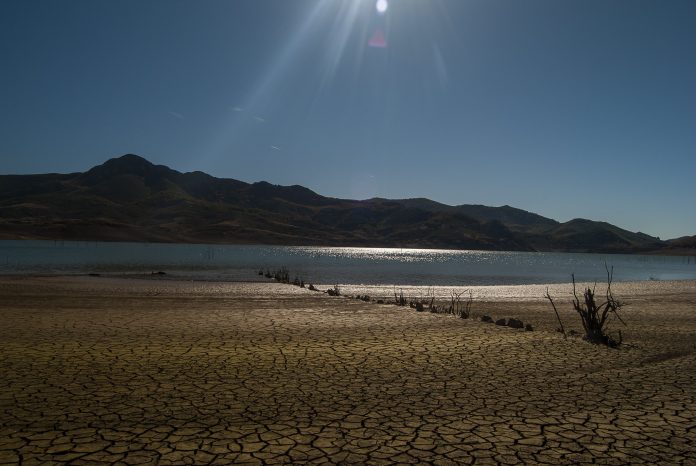The global debate around climate change is no longer focused on the research and scientific data. It’s taking a political turn with the rise of climate denialism. In Europe, this phenomenon has gained a strong foothold among European conservatives and the far-right parties.
In fact, there is a wide range of political parties in the EU that deny climate change and, as such, oppose policies to mitigate climate change. Take, for instance, the Law and Justice party in Poland and the Citizens for European Development of Bulgaria (GERB), which are members of the Conservatives (ECR) and the EPP Groups in the European Parliament respectively. Both these parties support their country’s coal industry. The far-right Alternative for Germany (AfD) party, which is a member of the Identity and Democracy group and the party of Nigel Farage, openly deny climate change, as is the case with some other parties in the European Parliament.
The rise of the conservative and far-right parties in the EU gives rise to questions about the outcomes of upcoming debates on legislation aimed to tackle the environmental problems that threaten our planet.
European Interest caught up with Dr Bernhard Forchtner to discuss in detail Europe’s climate denialist political environment. Dr Forchtner is Associate Professor and Director of Postgraduate Research & Programme Director of the MA ‘Global Media and Communication’ at the School of Media of University of Leicester. He is also a specialist on radical right activism and especially on what concerns the environmentalist policy of the far-right.
European Interest: The role climate change plays in the far-right and conservative agenda remains rather understudied. Since only some of these parties can be described as climate change denialists, do you think there is any trend as regards the spread of this kind of approach in Europe? Has a practical sense divided these parties between climate change denialists and climate change skeptics?
Bernhard Forchtner: Over recent years, we have learnt quite a lot about the way in which climate change is constructed and made meaningful in the public sphere, about climate-change communication in general. By now, there is also quite some research on the relation between climate change and contemporary conservatives. It is in this context, that climate-change skepticism has been researched, and much of this research has also been useful in the context of research on how the far right makes sense of climate change. Such research on far-right climate-change communication is now taking off – there are a few articles available, but there is much more to come.
As you mention, a few members of the far-right party family are skeptical towards anthropogenic climate change (‘denialists’, what is referred to as ‘evidence skepticism’); for example, claims, that the climate has always changed, irrespective of anthropogenic greenhouse gas emissions. Amongst those evidence skeptics have been the British National Party, the United Kingdom Independence Party and, now, the Alternative for Germany. More recently, the Spanish VOX seems to have taken a turn in that direction.
However, what is more prevalent is what has been termed ‘process’ and ‘response’ skepticism. The former concerns skepticism towards knowledge generation processes; for example, far-right actors cast doubt on the work of scientists or characterize the public debate as ‘hysteric’, ‘alarmist’ or in terms of ‘climate change as a religion’. Response skepticism signifies skepticism towards policy responses. For example, you might hear warnings, that Europe is becoming ‘deindustrialized’, that these policies harm ‘the little guy’, and that we should not go ahead with reforms if others do not follow.
Unfortunately, a lack of urgency appears to be felt not only by the climate-change sceptic far right, but is also widespread, though arguably to a different extent, in parties belonging to the ‘centre’
To the extent that these latter positions lead to a rejection of climate-change mitigation policies, their effect is the same as in the case of evidence skepticism. However, we need to differentiate carefully and, in much detail, so to understand how such actors argue – and to be able to respond. We might not be able to convince them, but we need to take these arguments serious: they are more likely to resonate with parts of the public, for example with those who already face difficulties paying their energy bills. A just energy transition must respond to these concerns.
By the way, there are also far-right actors which accept the thesis of anthropogenic climate change. Personally, I think we need to look much more closely at them, something which has not really happened in much detail so far. After all, acceptance of anthropogenic climate change can also carry far-right ideas; for example, in terms of opposition to (economic and cultural) globalization.
In an article you wrote in June, you argue that research “on climate change communication by radical-right actors is still in its infancy”. If we consider that our democracies are under a constant “fake news” attacks, do you think climate denialism has already spread through media and social media and yields an influence beyond far-right audiences?
I might be wrong, but currently, I do not believe that outright skepticism towards anthropogenic climate change (‘denialism’ or ‘evidence skepticism’) is going to become ‘the main thing’ across the European far right, at least concerning rather successful parties. It is not an opinion which is widely shared amongst the broader public and I doubt, that it will – irrespective of ‘fake news’. What is certainly circulating in very high volumes is the aforementioned response and process skepticism. These two help these actors to perform their stances, for example their opposition to a ‘detached elite’ which has supposedly lost touch with ‘ordinary people’ and seeks to push through reforms beyond what ‘the people’ need or can afford. Greta Thunberg has been a major point of reference for these attacks.
Alternative for Germany (AfD) party is probably the most well-known for its denialism. Do you think the party’s rise in many parts of Eastern Germany is a reaction to the rise of the Greens? Or perhaps there are other deeper roots?
I agree with your assessment of the AfD and its evidence skepticism. However, the rise of the party – which goes beyond Eastern Germany, but is most astonishing in these areas – has much deeper roots then the rise of the Greens (and let us not forget, that far-right sentiments existed in Germany long before the AfD became successful). If you want to connect the rise of the AfD to particular events, it would be the so-called ‘Euro crisis’ and the ‘refugee crisis’, but I would go further and argue, that both the rise of the Greens and that of the AfD are linked to more general societal processes around pluralization, fragmentation and polarization of the political landscape in Germany and across Europe. That is, due to the erosion of previously existing identities in the course of economic (neoliberal) and cultural (liberalization) changes, though these two are partly interwoven. In terms of sociological analysis, Ulrich Beck’s risk society comes to mind, as does the argument made by Pippa Norris and Ronald Inglehart who view the rise of the far right in terms of a cultural backlash against the so-called ‘silent revolution’ (that is, a shift from concerns over material values and physical security to concerns over quality of life, including environmental issues).

The far-right Alternative for Germany (AfD) party and the party of Nigel Farage, openly deny climate change (credit: Flickr/J R/CC BY-NC-ND 2.0).
The environmental policies adopted by many far-right and conservative parties are controversial. For instance, Austria’s FPÖ describes itself as being sensitive to environmental issues, but maintains strong ties with the automotive and steel industries. How do you explain this? How can “ideology” be so conveniently combined with lobbying for the big polluting industries?
I fully agree that there is a strong connection between ‘the land’ and ‘the people’ in far-right thought, a connection which can justify specific environmentalist positions. This is most obvious concerning landscape-related aspects, but can go beyond this. A specific, far-right sensitivity towards the environment is certainly present in the case you refer to, the Freedom Party of Austria. Turning to your point regarding ideology, it is indeed the case that ideologies are often perceived as being systematic and unified. However, I would call for caution; yes, some ideologies are more unified than others, but they all include what Michael Billig and his colleagues have referred to as ‘seeds for contrary themes’. The ties you refer to also emerge from deep-seated views: that is, perceiving ‘the people’ as pure and combining this with a traditional-masculine image of a hard-working blue-collar taxpayer leads to the defence of this kind of lifeform (industrial modernity; see Martin Hultman’s work for more on this). This can consequently result in, for example, thematising the alleged shut down of ‘our’ industry and shrinking employment. Against this background, the way in which sensitivity to the environment is combined with other policies needs to be understood as a process of negotiation and the setting of priorities in particular contexts (instead of making broad, ‘deterministic’ claims).
Although the far-right did not enjoy the expected success in European elections, many parties in the European Parliament are keen to reject significant proposals to tackle climate change. Since parties that openly question, in one way or other, the EU’s climate policies are in governments – such is the case in Bulgaria, Slovakia, Poland, Hungary and Estonia, to mention some – do you think this could result in a “lower speed” in EU climate policy?
Unfortunately, a lack of urgency appears to be felt not only by the climate-change sceptic far right, but is also widespread, though arguably to a different extent, in parties belonging to the ‘centre’. As such, and given how the European Parliament is composed, a lack of real progress will ultimately be down to ‘mainstream’ parties. But you are certainly right that more opposition is not going to help, especially as arguments and resources travel beyond Brussels. The Berlin-based think tank adelphi recently published a study in which it concisely presented voting behaviour of these parties in the European Parliament (often opposing climate change related legislation). Given that climate change is going to stay with us for the foreseeable future, and given that dealing with the phenomenon’s social implications should not be left to the far right, these findings too point to the importance of a just energy transition coupled with the need for urgent action.

